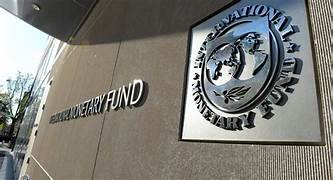The $7 billion agreement with the International Monetary Fund (IMF) offers much-needed relief to Pakistan. However, experts caution against celebrating prematurely.
Murtaza Syed, former acting governor of the State Bank of Pakistan, highlighted in a tweet that for this staff-level agreement (SLA) — Pakistan’s 25th with the global lender — to be finalized, the country needs assurances of financing from its development and bilateral partners.
“This is Fund-speak for securing undisclosed debt relief from China. This approach is flawed, incomplete, and risky,” he cautioned. “It’s flawed because Pakistan’s debt issue isn’t solely tied to Chinese debts.”
Syed, currently with the Asian Infrastructure Investment Bank (AIIB) in Beijing, acknowledged Pakistan’s unsustainable debt situation but pointed out its diverse creditor base. He noted that Pakistan owes more to multilateral development banks like the World Bank, IMF, and the Paris Club than to China.
He argued that the IMF deal remains incomplete as Pakistan requires debt relief from all major external creditors, including multilateral banks, bondholders, the Paris Club, and China.
“China’s exposure to Pakistan is relatively moderate, so it alone cannot resolve our debt challenges. China is just one part of a larger equation,” he emphasized.
Syed warned of the dangers posed by the agreement, citing geopolitical vulnerabilities and the potential for prolonged economic austerity that could stifle growth and impede reforms.
He stressed the need for a coordinated approach to debt relief involving all creditors, drawing on past experiences and urging stakeholders to act decisively.
Michael Kugelman, a South Asian affairs expert at the Wilson Center, noted the IMF’s endorsement of Pakistan’s recent macroeconomic stability achievements but underscored the challenges ahead.
Akbar S. Zaidi, Executive Director at the Institute of Business Administration (IBA), echoed concerns that the IMF package reflects ongoing economic shortcomings rather than successes.
According to The Financial Times (FT), Pakistan faced severe economic crises recently, with high inflation and a debilitating debt burden consuming a significant portion of government revenue.




